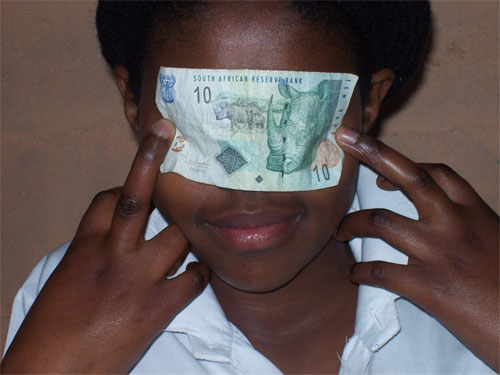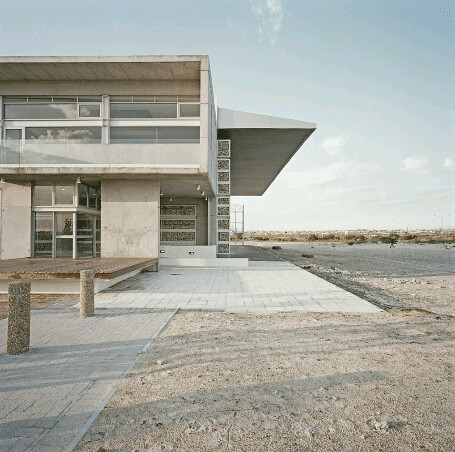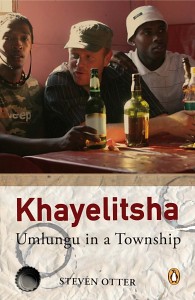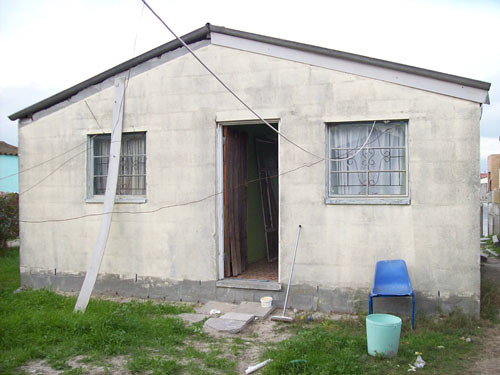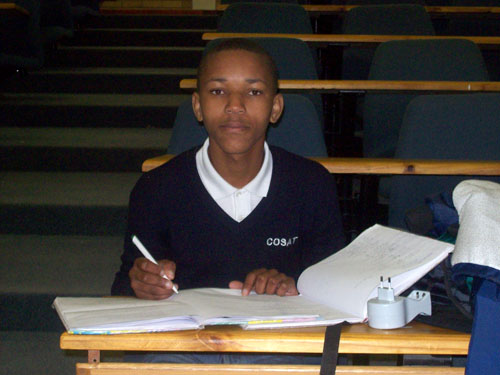interview with FRE: HERE
I skipped an invitation of Matt Mullenweg (founder of WordPress) to come wine tasting, to finish this proposal…
By Frerieke van Bree
So glad!
The NCDO (= Dutch Government sponsored funder – www.ncdo.nl) wants to support the Students project here in Africa with 16.580 Euro!
Our fund application receives more and more positive responses…
Besides the NCDO, also The Dutch organization KICI (www.kici.nl) has donated 5.000 Euro. The Dutch ‘Stichting Projecten Zuid-Afrika’ has required more information and will get back to us the end of April.
There is one big ‘BUT’….NCDO will only sponsor the 16.580 Euro when we are able to match it!
Our 16.580 euro is partly covered by the 5.000 Euro from KICI and 1.000 Euro from our great friends Rolf & Klaar (Dutch). We have to raise another 10.580 Euro…YES that is a lot! AND…nothing is impossible…
What are we raising money for? Materials and training: Leadership training to teach students (14-18 years) to know how great they are and what a difference they can make for their own community. The students get trained to use modern technologies (digital camera’s, mobile phones, laptops) to source stories in their communities and publish them online on the http://studentsforhumanity.com website in order to connect with students and donors overseas.
Would you like to know more?
Email us: stichtingumeebee@gmail.com
Would you like to make a donation?
ONLINE via paypal or via our Dutch bankaccount
Read below the testimonial of Rolf, one of our donors…
Last February 2009, we (Klaar and myself) were invited by Frerieke to visit the COSAT school in Khayelitsha.
We were impressed by the spirit and motivation of not only the students but the staff as well! This visit made us see that despite the difficulties and harsh conditions in the townships, there are so many inspired people that want to make a difference!
We are more then happy to give some financial support to an initiative that helps to make this change for the better! Compared to the big organizations, they might not have the fancy brochures, big fundraising campaigns and large projects, but what they do comes right from the heart and maybe they even have more passion and devotion since they are in direct touch with the people!
After all, we are all more or less the same when we are born. But some (like us) are lucky to have a protected childhood and get an education, allowing them to get a job, house and a comfortable life. This while others face problems from day one. That difference does not make sense at all.
For us an amount of money not spent on a new surfboard, television or a vacation, but after all these things would not really make a difference in our lives. But it might just be the money that allows someone else to experience and learn things that might make the difference in his life!
Ubuntu versus Western Consumerism
By Frerieke van Bree
The birth of the ‘informal settlement’ (= the official name for ‘township’), goes back to the early 1900s, when the diamond and gold industries required workers from rural areas to come to the urban centers to provide labor. In the 1950ies the Apartheids regime and their Group areas act was the cause of forced removals, resulting in even more separation and the growth of the informal settlements.
1994, the end of the ‘separation’ (Apartheids) regime and the beginning of a free movement for any South African human being, meant a flow of families trying to find their luck away from the rural areas. The Townships experienced another huge increase in number of inhabitants.
2009, 15 years later, still 1.5 million people occupy ‘shacks’ (the structures constructed from waste material, mostly consisting of corrugated iron and timber)
Why is that number still so high? What is holding urban planners back from developing the empty sandy fields within the Townships? What is holding government back from replacing the informal settlements by RDP Housing?
A lot of people blame the so called ‘corrupted leadership’ within the country. I think that is an easy way out of facing reality and taking responsibility.
This week I attended a debate that was organized by the architectural firm I am working for, www.makekadesign.com. The main intention of the debate was to bring together different stakeholders (interested in urban planning and development within formal and informal settlements, the South African ‘Townships’). The goal was to continue the conversation about cooperation and development (No, it’s not a new conversation. Actually 15 years of talking has already past).
Talking, talking, talking…South Africans are good in talking -shit-. Where is the action? Where is the talk without judgment? When does the ego finally realize that success is not measured on the amount of talk about it, and has nothing to do with result either. Real success is to be found within the intention and the actions that are taken by compassionate individuals.
What made the debate this week different from all the previous ones in the last 15 years? >> Its’ location was quite unique: in the township. The ‘white jewel’ is a beautifully designed, modernistic building, shining bright. Yes the jewel is shining bright but also standing lonely on the Sandy grounds of Township’s Khayelitsha Central Business District (to be). The opening to the public will hopefully happen soon and it will then become clear if the architects and clients’ (city of Cape Town) intention was truly in benefit of all people, with needs identified from within the community…
A few kilometers up the road you’ll find the Lookout hill Center, constructed in 2003 with the goal to attract tourists and create a new market in the Township. This beautiful -but empty- building (it has almost not been used at all the past 5 years) reflects in my opinion a typical greedy consumer society development. Although I am not sure about the actual intention behind the building, the implemented current policy is in no way serving the community (local community is not allowed to use it and the flows of tourists are lacking). This makes me wonder who was suppose to benefit from the profits of this tourism market anyways? A sad story. The few local community members that occupy the craft market (that lacks visitors!) give meaning to an empty place, falling apart by the lack of maintenance..
Why do tourist not get to the lookout hill in Township Khayelitsha? Where is the ‘white’, wealthy man? Where is the ‘black’ brother that is celebrating life in the Suburbs?
The answer is mostly to be found in the fear that exists among above mentioned groups. This is a fear for hatred resulting in criminality.
Is that fear grounded? No. I have been going in and out the Townships for the past years and have only once seen a criminal action. My brother has once been threatened with a knife and forced to hand over his belongings in safe place, The Netherlands. Does he walk around fearful now?
Unfortunately, we create monsters. In the society of exclusion there will always be those who need to fight for the material that is to be said to be the road to success. The ego is a master in misleading consciousness…
What creates this fear? Or better: why do we allow the voice in our head to tell us that we need to be fearful? My two cents… a lack of understanding cultures.
Steven Otter writes in his book Khayelitsha, Umlungu in a Township: “This way of thinking comes from ignorance and stupidity, a combination that ruled our land for almost fifty years, and one that very nearly ruined the lot of us. And if, as white people, we continue to keep a distance between ourselves and the black man, how will we ever know him? How can we pass judgement on someone we don’t know? There are thousands of Ta-fumsas and Madibas out there, but we whites ignore them and do our best to encourage them to become the thugs we so desperately fear.”
(Steven has been living in Khayelitsha among the black community for a few years in 2002 and 2005.)
I highly recommend this book to every white person out there, to understand the communities in the South African Townships and more important, the spirit of Ubuntu:
“Umuntu ngumuntu nga bantu” an old Xhosa saying – meaning a person is a person because of other people.
Our Western consumerism tells us “to have is to be”. My status is measured on the material possessions I have. We become very individualistic, protecting our belongings from our neighbors. Our perception of community is very different from the African community of sharing.
Urban planners in South Africa are -unfortunately- predominantly white and brought up with the ‘Western perception of community’. We mirror our materialistic world view upon a community of Ubuntu. We tell them to put a fence around their house to be protected from criminality …while in fact we increase the criminal madness with our individualistic approach. By fencing each house, the street becomes no-mans-land, which can also be called: criminals playground!
…and so do we keep our own created fear alive and are able to proof our misleading fear-monster right: township is dangerous, black man is dangerous. You white fools! Wake up.
To go back to the debate this week, the main things we were talking about (that interested me) are cooperation and documentation.
Cooperation between:
- Government (local, provincial and national > at the moment they often have conflicting requirements > how to get them on one line?)
- Business (work together with the potential -previously underprivileged- entrepreneurs in the Townships: how to stimulate this?)
- Transport/infrastructure sector (streets and transport nodes need to be ‘owned’ by the township dweller. Including a part of the public domain to the place you call home will lead to maintenance and crime prevention. “houses are built on foundations with walls and roof. Homes are built with things much deeper and less concrete” (Sandile Dikeni in the book Shack chic)
- Urban planners/architects (think about your intentions! Get rid of the ego, listen, learn to understand cultures)
- Community (how to -include- members of the community in the development process. Yes, a debate -open to the public- in the Township was a great first step. The language should be understandable for all, and members should be invited to come. The needs of the community need to be included in the policies and development plans that are being created)
Documentation: share knowledge. Don’t reinvent. Be creative in your ways. Use modern social media.
Instead of blaming the local and national governments of corruption (I am not saying corruption does not exist)…let us all focus on how to understand Ubuntu from our Consumerism glasses. Learn to understand cultures. Listen.
Credits:
– Image MPC Khayelitsha by David Southwood
– 3d virtual images by Virtual Africa.
(explanation: image 1: on top of the Lookout hill in Khayelitsha, spot me and the Afrigadget girls on the pic! image2: Khayelitsha, Bonga Drive. Thank you Tinus from http://virtualafrica.co.za for this wonderful way of illustrating these words!)
HOW TO: technology and implementation

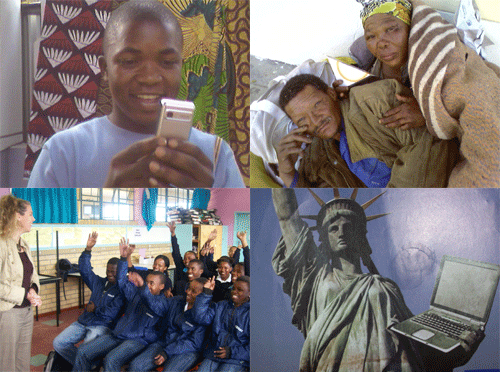 Techie is a term, derivative of the word technology, for a person who displays a great, sometimes even obsessive, interest in technology, high-tech devices, and particularly computers. (source: Wikipedia)
The word geek is a slang term, noting individuals as “a peculiar or otherwise odd person, especially one who is perceived to be overly obsessed with one or more things. (source:Wikipedia)
Techie is a term, derivative of the word technology, for a person who displays a great, sometimes even obsessive, interest in technology, high-tech devices, and particularly computers. (source: Wikipedia)
The word geek is a slang term, noting individuals as “a peculiar or otherwise odd person, especially one who is perceived to be overly obsessed with one or more things. (source:Wikipedia)
by Frerieke van Bree
I don’t consider myself a real ‘techie’, but I do have a strong passion for technology.
And although the word ‘geek’ is often used in obsessive computer/technology/connectivity situations, looking at the explanation on Wikipedia makes me think: Yes I am a geek. A big one. I am obsessed with combining my passions (humanity, technology, design, leadership). I am a people loving-passion following-intercultural connecting-voices facilitating and human empowering GEEK.
Last year I attended the Web of Change conference in Canada. Being among some of the brightest web focused changemakers from The States and Canada was extraordinary. People like Peter Deitz, Marc Laporte, Michael Silberman and many others inspired me to hold on to the thought that technology can make a difference in the lives of many underprivileged people. Attending the (mostly white) Wordcamp South Africa (a gathering of fans of the open source blogging software WordPress ) opened my eyes to how big the gap between technology implementation in the privileged (mostly white) and implementation and usage in the underprivileged (mostly black/colored) communities is.
Recently I visited MobileActive08 in Johannesburg. A (to me) very inspiring, but also overwhelming mix of geeks, techies (including Google, Microsoft,..), funders and implementers, who all make a difference in the world through mobile technology. I was blown away by what is already being done with the mobile phone in the developing world. A few personal highlights: meeting Erik Hersman and getting to know the crisis report enabling Ushahidi and listening to Guy Berger and his Journalism project The News is Coming in Grahamstown, South Africa.
Being at those conferences made me feel like being back at University. Our faculty of Architecture was considered to be the ‘soft’ faculty of the Technical University of Delft in The Netherlands, other faculties used to make jokes about the ‘cut and glue’ course we were attending. The 80% male-20% female rate in Delft, being the only girl on our Windsurf association board, living with 4 bright men in a house…it all made me feel like a black sheep in a world of Men and Technology. And after university it was: being a woman in the building industry, being a woman in a (unfortunately still!) predominantly white-male dominated South African society and now I ‘torture’ myself with….visiting technology conferences…
My insecurity at conferences tells me: What am I doing here? Where’s my IPhone/blackberry/apple computer? How do I talk tech? How on earth do I catch up with all knowledge in this audience? It is like being back at University…..I don’t belong here.
Fortunately, my secure and balanced me says: does it matter? My vision is clear, my passion is big.
Go and explore girl, make those connections, learn as much as possible.
Major Non-profit organizations have their own Technology consultant on board and come up with the most creative and innovative uses of technology on the ground. Great. But….
I wonder: How to get the message of what is possible with technology out to the many “heroes in underprivileged communities”??? How to hear the needs and ideas of young brights minds in the developing world??? How to empower Africans by African ingenuity??? How to have Africans say NO to the brain drain? How to have Africa really be in the hands of Africans!!
I enjoyed reading Ethan Zuckermans words on bridge figures {…we need bridge figures, people who can help build connections between cultures. We need xenophiles, people who are interested in the whole world and in building conversations that break out of the homophily trap.}
If people ask me what my secret skill in life is I say I am a connector and facilitator. I facilitate a space where the one can meet the other, where people from The developed West meet the poor South, young meet old, You meet Them, They meet YOU and YOU get to know YOURSELF. I facilitate a space of no judgement, listening and curiosity. A space of fun! and smiles 🙂
Back to the title of this blog post: {How To: technology and implementation}
How to improve the implementation of Technology in order to eradicate poverty/empower the underprivileged/bridge the implementation gap?
My two cents…
- Improve the language of technology: right now it is too techie and not easy accessible for all. It can not be read/reached by the communities on the ground that know best what is needed in their village.
- Include (underprivileged) youngsters!! The bright minds of the future should be included in the conversation of today! Let them be inspired and generate ideas!
- Support bridge figures! Give them a feeling of -belonging- in the world of Men and Tech! Create (more) scholarships for fancy conferences!!
I am so happy that I was able to step over my own foolish insecurity and explore and exchange at the above mentioned conferences. Great things come out as a result! Me being the connector enables underprivileged students from Khayelitsha to become mobile reporters on Afrigadget !!!
I promise I will never doubt the impact I am making in the world and the fact that I matter…
I have experienced a shift from ‘not belonging’ to a ‘knowing who I am and what my passion and purpose in life is’
Being a bridge is the best! Thanks COSAT learners! And thanks you Tech-savvy global inhabitants!
My mother passed away, my father is a drug addict
By Lwazi Dyantyi
What matters to me is my friends and me.
The reason why I say that my life matters to me is that I have been and still going through a lot of painful things alone. When my mother passed away I was lost because she was my guider and adviser. My father is a Junkie and he don’t care about me and he says that I must be “INDEPENDENT” to him. That’s very painful to be told by the only parent you are left with. I know that good and bad times come and go so it’s part of life. Now I have to make and take positive things and choices of my life. I love myself no matter what the situation is I am only me NOBODY ELSE.
Many of my friends are fortunate than me they still have both of their parents. They are given everything that they want at any time than me. I once had o low self esteem because of the situation I was facing. I advice them to LOVE,CARE&RESPECT them while they still have them both. I have seen that most of the youngster get LOST and start to be CORRUPT when one or both of their parents died. I don’t want my friends to be like that when that time comes in their lives. I try by all means to make or prepare them that PATH when that time came. I love my friends very much and I care for them.
Yes in life there are GOOD and BAD times but I am glad that that time came when I loved GOD because he is my savior. I love myself no matter what the situation is because they are making me to be a STRONG and BRAVE man in my future. I LOVE MYSELF VERY MUCH THANK YOU.
NOTE BY Fre: for more pictures that the students have taken, please visit our gallery
Art and Leadership
Eline, my Dutch fundraise buddy and I are finalizing a great proposal which will a. create a way for students to earn their university fees by practising their leadership skills in their community and b.make it fun for you all to connect to those inspiring individuals and sponsor them and the projects that matter to them.
Exciting times in Africa!
For the tech savvy people… I attended the first Wordcamp South Africa last weekend…very inspiring. Especially WordPress founder Matt Mullenweg is an incredible human being who I enjoyed meeting a lot.
Jep… I still know that internet is the way for me to combine my passions: art and humanity, with what really matters to me: having people to know that their voice matters, have them create incredible connections.
‘Strike a woman, strike a rock’
that proposed further restrictions on the movements of women.
Those brave women risked to be arrested or banned. They demonstrated courage and strength and proved that they could organize themselves, that they were not powerless, that the commonly accepted stereotype of women (tied to the home and not politically mature) was outdated and inaccurate.
Wathint’Abafazi Wathint’imbokodo! (Now you have touched the women, you have struck a rock.) was what the women were singing during their march. The latest incarnation of their song: ‘Strike a woman, strike a rock‘ has come to represent women’s courage and strength.
The 1956 March helped to shape the ideologies of many, particular those that drafted the South African Constitution and the Commission of Gender and Equality. August 9th is now celebrated as Women’s Day in South Africa.
Women are driving forces in the transformation of South Africa. Within the black community for example they are the ones that 1. Stand for their family, 2. Work, 3. Do all the cooking, housekeeping. Cape Town’s mayor (and national opposition leader), Helen Zille is a perfect example of a woman with courage and power.
Personally, through my profession (building industry) and experience of working both here in South Africa and in The Netherlands, I can conclude that traditional role plays (women at home, men in power) are still much more accurate here in South Africa compared to Europe. ..that is one of the reasons why I would like to give extra credits to Helen Zille and all those other great female activists here in South Africa!
The attached photograph shows two beautiful young South African women. One being from the Xhosa culture the other from the Coloured Community.
 A Dutch regional newspaper has published an article about me (and my activities for humanity here in South Africa) …….the interesting thing is: I don’t know anything about this! Please let me know if you do, i would love to see the article. I heard they have even included a picture…interesting!
A Dutch regional newspaper has published an article about me (and my activities for humanity here in South Africa) …….the interesting thing is: I don’t know anything about this! Please let me know if you do, i would love to see the article. I heard they have even included a picture…interesting!
Yesterday evening during my seminar, one of the ladies in the seminar came up to me, saying: I’ve heard you on the radio! HUH…What??? nooo that wasn’t me…but yess she said…my funny dutch accent ….and then I remembered this…a few months ago, Anasuya and I were interviewed about our activities with Love to The World. We took 2 of our students with us to the studio and the 4 of us spoke about the Leadership work we are doing in Khayelitsha, the workshops with HIV+ women… unfortunately the radio station never told us when it would be up in the air. We’ll try to get a copy of the interview!
For my Dutch speaking readers…Petra Kroon, founder of Goedgeefs (a Dutch organization that forms an intermediate between Dutch Corporations and projects in South Africa) has published another conversation of me and her on her blog, this time about the rising food prizes here in South Africa…
have a read… http://www.goedgeefs.nl/#/weblog/
Have you got any specific questions that you would like to see answered? let us know and we can discuss your topic of interest.
I love all this unexpected media attention! keep it coming!
 Two Years and counting…
Two Years and counting…
I am here in Cape Town exactly 2 years now!
Wouw.
First intention was: a year and then up to another continent (South America?!) . Haa and here I still am….South Africa. And what’s next? I am staying for a bit.
I have started a new and very exciting job at www.makekadesigns.com > we are making architecture that is able to compete at a world scale (check us out in China! www.ordos100.com ) and in the same time we are dealing powerfully with local issues. We are working on the Cape Town train station, a development plan for Township Khayelitsha, an ecovillage, a campsite for Table Mountain National Park. A vibrant place. I managed to arrange a work week of 4 days, to be able to do all the other fun stuff…
I started teaching (art and empowerment) in the Township, which is awesome! Visual arts, art and revolution, team work, community building, Photography…
Anasuya and I are creating more and more opportunities to work with the COSAT kids. We are so behind with all our online updates on our website www.lovetotheworld.org …but we’ll promise to make some time, so keep an eye on the site.
Together with an awesome lady in The Netherlands, we are creating a winning fundrais proposal, which will create even more opportunities for the students here, which will kick off www.umeebee.com and now for real. The Umeebee team is still alive and waking up from a winters sleep with Eline on board.
The summer is almost here again. Days are getting longer. The mountain still impressive
Our house is still lovely (so great to live with good high school friend Edith).
I have started a great, intense Leadership course, so some good personal challenges the next 6 months!
Jep…I am hanging around here a bit longer. Too many good things. I’ll only move on to another place with an excellent plan. A plan that will excite me more then what is going on for me here at the moment…for this is good, challenging and new!
Come join me here, or come visit
or…we’ll skype
(the pic: one of our favorite lunch spots, just around the corner)

